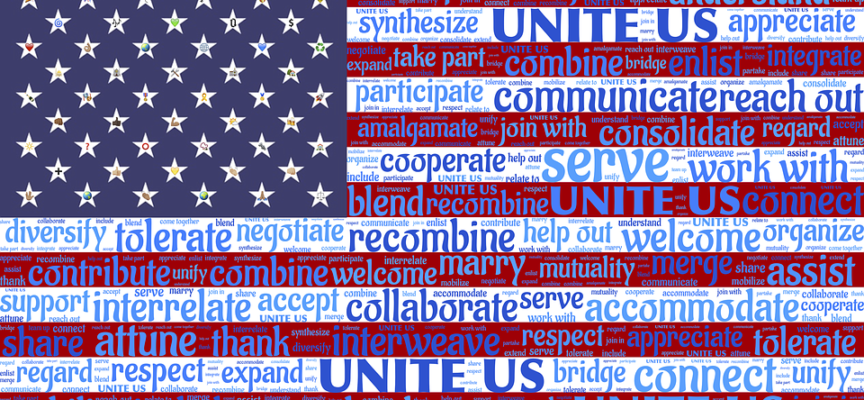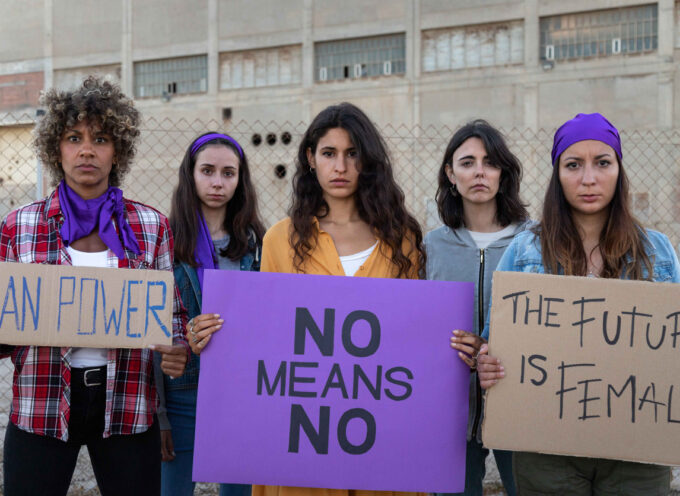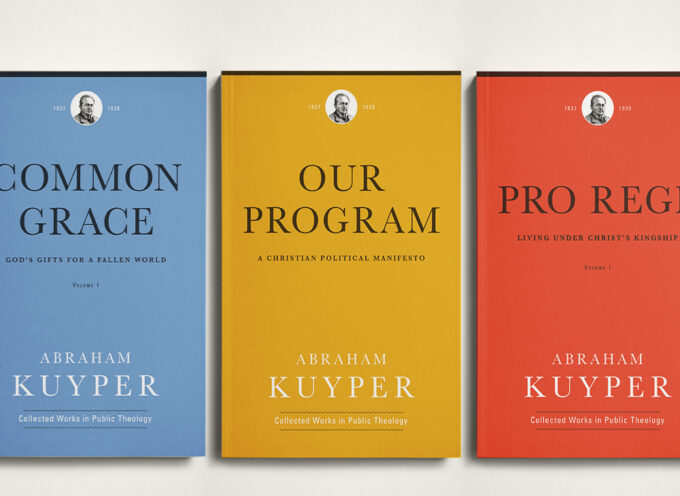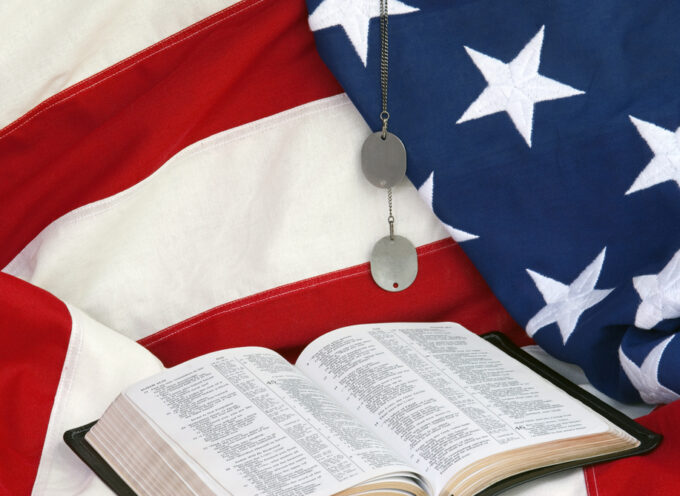By: Bruce Ashford, Michael Graham
We are still in the first year of the Trump presidency, and the waves of political division that crashed over our nation during the election cycle have not subsided. And they will not subside until we identify and seek to mend the social fault lines that lie beneath the political division, that threaten to make a mockery of E pluribus unum (out of many, one), our national motto.
Can “We the people” honestly deal with our deep divisions “in order to form a more perfect union?” We can, and we must. But before we talk about how to deal with those divisions, we must be willing to recognize them for what they are. Some of those divisions—such as ideological, racial, and economic—have been apparent for years now, but there are at least three significant divides that were “off the radar” for many Americans until the 2016 election cycle put them on full display:
Rural vs. Cosmopolitan
The first divide is one that has been widening for years now, but whose vastness had not begun to be recognized until this year’s election cycle. On the one hand, rural Americans—especially white rural Americans—feel that identity politics has been disproportionately unfair to them. They are tired of being looked down upon as blue-collar, backwards, uncultured, uneducated, and even “deplorable.” They felt voiceless until Donald Trump gave them a voice.
On the other hand, many cosmopolitan Americans express frustration and fatigue over the reluctance of “flyover states” to get on board with their agenda. Liberal cosmopolitans want them to get on board with gay marriage, transgender bathrooms, and multiculturalism. Conservative cosmopolitans want them to see the goodness of globalization, international free trade, and relaxed immigration laws.
Nationalist vs. Globalist
The second divide exists between Americans who view globalization as a net positive and those who view it as a net negative. On the one hand are the nationalists. Economically, they feel like the American dream is slipping through their fingers because of outsourced jobs, bad trade deals, and jobs stolen by undocumented immigrants. Culturally, they feel an intense sense of nostalgia for a shared American culture that they see dying and disappearing. For many of them, their nostalgia manifests in sadness or a benign variety of nationalism, but for others it manifests in xenophobia or racism.
On the other hand are the globalists. They argue that the forces of globalization are too decentralized and complicated to battle. We are better off evolving and channeling those forces for our benefit. Lost manufacturing jobs are collateral damage for cheaper products, higher profits for multi-national corporations, and therefore better-performing retirement accounts. In their eyes, tariffs are short-sighted and ultimately ineffective answers to exported jobs, and the unintended negative consequences of those tariffs will harm our nation economically and politically. Some globalists are bigots who (perhaps unconsciously) view the working class as their lesser.
Warrior vs. Cultivator
The third divide—between warriors and cultivators—is seen most clearly within the circle of evangelical Christianity, but is evident in other circles also. On the one hand are the “culture warriors.” When evangelical culture warriors evaluate evangelical Christianity’s relationship to emergent American culture they see war and (almost) nothing but war. Further, they believe the winners will be the ones who can pull the levers of top-down influence. The most significant lever is political, and is pulled through short-term activism that eventuates in political victories.
On the other hand are “culture cultivators.” When they evaluate evangelical Christianity’s relationship to emergent American culture, they see an opportunity for organic influence. They view cultural influence as something that comes as much from the bottom-up as it does from the top-down. They are more likely to be comfortable with their “minority” status in American society, and more inclined to cultivate influence instead of fighting for it.
E Pluribus Unum
We the people can deal honestly with our deep divisions “in order to form a more perfect union.” We have done so in the past and we can do so again. But in order to do so, we will need to work from common ground and cultivate certain virtues.
Common ground exists. In relation to the rural/cosmopolitan divide, our common humanity should produce some level of empathy and understanding, as has been recognized by some cultural commentators and even a Saturday Night Live skit. In relation to the nationalist/globalist rift, both sides see the need to reinvest in the blue-collar sector and in job training, as is exemplified in organizations such as Mike Rowe Works and Jobs for Life. In relation to the warrior/cultivator divide, common ground exists in their common desire to see our nation embrace God’s vision for human flourishing.
But common ground is not enough. In addition, we must cultivate two virtues in particular. The first and most significant virtue is love. “Love your neighbor as yourself” (Mk 12:31); American citizens would be well served to develop friendships with people on the other side of the divides. And love involves sympathetic listening. Each of us appreciates it when our voice is heard; our nation would do well if its citizens would give an honest “audience” to one another.
The second virtue is wisdom. Wisdom is the embodiment of knowledge, experience, and character. It examines all of the possibilities, weighs them, and proposes the best path forward. Sometimes wisdom dictates an appropriate compromise with the other side of the aisle; other times it involves drawing a line in the sand.
Without these virtues “We the people” will become an increasingly fractured republic. With these virtues “We the people” stand a chance of making E Pluribus Unum a reality.
________________________________________________________
Bruce Ashford is Provost and Professor at Southeastern Baptist Theological Seminary. He is the co-author of “One Nation Under God: A Christian Hope for American Politics.” Follow him on Twitter @BruceAshford and find him on Facebook.
Michael Graham is Associate Pastor at Orlando Grace Church. He writes at michaelsgraham.com. Follow him on Twitter @ufmikeg.
Subscribe
Never miss a post! Have all new posts delivered straight to your inbox.








Bruce and Michael, you have given me something to consider. Thank you. When I read the title of your blog, I zoomed in on the “…3 Social Divisions We Must Overcome.” I immediately assumed that race would be in your top three and admittedly I was disappointed to find that it is not even mentioned. However, the absence of race only confirms the divide that I feel is growing between black and white Americans. This article is helpful, but it does not seem inclusive of me and my concerns as an African American woman. It seems written towards unifying white America. I was hoping for perspectives on how to unify all of America, Blacks, Whites, Latinos, Arabs, Jews, Asians, and Africans. Those social divisions that you state don’t seem to typify all of America, just white America. What becomes of everyone else?
Professor Koonce: hi! Thank you for commenting. I’m rolling out a series of articles on three other social divides (racial, socioeconomic, and ideological) soon. One of them will come out at Fox News (an article against white nationalism and white supremacism) and the others will come out on my blog. We wanted to write this brief opinion piece about three of the divides that seem to be ignored, and that could easily be written about in a short opinion piece. Does that make sense? I agree with your concerns above.
Oh great, and I look forward to reading them. Yes, I agree that the divisions you stated are certainly ignored and overlooked. Thanks for responding!
We have common ground, but all must recognize it: we are of one race – the human race. We have equal value – we are all Image bearers. And we are Americans. If we could stand on those three, then this could follow; In my humble opinion, our differences are assets, just like different strengths in a group improve the whole. Instead of vilifying our different world views, consider how they can be utilized for the betterment of the whole. Win-win.
Thank you Carole, for taking the time to comment and interact.
I think we are un unified because we have republicans and Democrats
it steers us away from each other and we should stay together and not fight over the little things